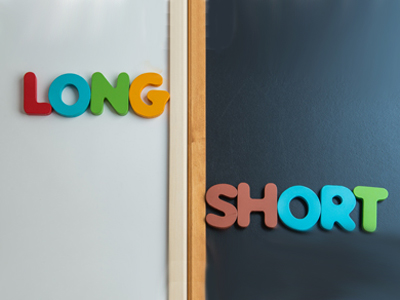
VR - Making Words from Larger Words
This article was originally combined with another an so less specialised. You can now read the rest of the information contained in the previous article in our new one: Words that Cannot be Made from Larger Words
Making Words from Larger Words is basically a test of your child’s ability to do anagrams. Anagrams are words formed by rearranging the letters of a different word.
For example, the word ANGEL is an anagram of GLEAN.
Usually, anagrams are made by using all the original letters once. In this case though, it’s a bit easier as only some of the letters have to be used.
How Are These Kind Of Questions Posed In The Exam?
Candidates are given a word and asked to use some of the letters from it to form new words. The words they are asked for will be given a definition, and they will also be told how many letters they should use.
As ever, the best way to show you is through an example.
Example Question One
From the word IMPORTANCE, form new words having the following meanings :
| Tighten | _ _ _ _ _ |
| Two parts of the eye | _ _ _ _ _ _ AND _ _ _ _ _ _ |
| A form of transport | _ _ _ _ _ |
| Writer of verse | _ _ _ _ |
| Close | _ _ _ _ |
This is a tricky question to explain and, thankfully, not the sort that you'll get very often. I've seen it on a couple of papers to get into private schools at 11+ so it's worth taking a quick look at.
The basic premise is to test a child's verbal reasoning and vocabulary. The initial word is likely to be quite long, to make life tricky, and the number of letters required for each of the answers is usually indicated by the number of dashes.
There is no special way to solve these questions - you simply have to work on it from the vocabulary point of view and be aware of the letters available. Work your way through the clues one by one, see what you can get and don't get held up on a question you don't know straight away. This is a great tip for everything, mind you!
You can always look for common letter strings and other techniques but, realistically, all you can do is ask your child to come up with a mental list of words which could mean the same thing as the clue and see if any of them come up in the letters of the large word.
For example, if your child has been listening in science lessons, they may have heard of parts of the eye such as pupil, cornea, iris, retina... Of these, both cornea and retina can be made from 'IMPORTANCE'. This is testing vocabulary as much as anything; it is an advanced version of the anagram questions.
The other answers would be 'cramp', 'train' (not 'car' as there are five letters in the answer, as shown by the number of dashes), 'poet' and 'near'. Remind your child that many words have different meanings so 'close' could mean 'to shut' or 'not far', and try to visualise any objects to help them come up with other names for things.
Sample Tests
As we learned in an earlier article, some children have a natural ability to spot anagrams, whilst others do not. For those in this second category, practise is the best way to improve. That, and of course, a large vocabulary.
These kinds of question don’t suit multiple choice quizzes very well. Nevertheless, to make a comprehensive Verbal Reasoning section, we have included four quizzes on them on our site, which you can find by following these links:
Making Words from Larger Words 1
Making Words from Larger Words 2
Making Words from Larger Words 3
Making Words from Larger Words 4
Let your child have a go. They may find the quizzes a little too easy, but at the very least, they will familiarise themselves with this format of question and, hopefully, improve their vocabulary to boot!




